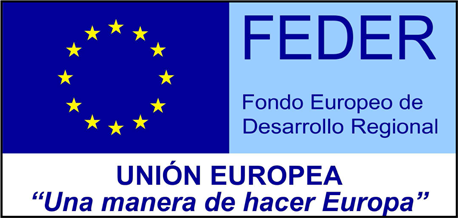ENVIRONMENT
Commitment to quality and commitment to the environment.
In 1997 HARIVASA obtained the ISO 9002 quality certificate, being the first flour industry in Navarre to do so.
In 1998 and 1999, an occupational risk management system was developed and implemented, in accordance with the Occupational Risk Prevention Act, and in 2000, this commitment affected the entire production process, minimising polluting emissions, using energy efficiently, recycling all types of materials and, in short, preserving our environment in the best possible conditions.
Obtaining the ISO 14001 environmental management certificate in 2000 for the production of wheat flour, rye flour, special flours, germ and bran and for the commercialisation of organic flour marks a new milestone in the history of the company, as it was the first to obtain it in Spain and in Europe.
During 2021 Harivasa is the promoter and developer of the first certification of sustainable wheat and flour production in Spain, together with Aenor and the AN group, the aim of this certification being to promote agriculture with the least possible impact on the environment and biodiversity.
In 2022 Harivasa obtains certification as a sustainable flour producer. In this way, AENOR recognises Harivasa's good practices to promote well understood sustainability, which implies satisfying current needs without compromising the ability of future generations to satisfy theirs, guaranteeing a balance between economic growth, care for the environment and social wellbeing.
This company has received a grant co-financed at 50% by the European Regional Development Fund through the 2014-2020 ERDF Operational Program of Navarra

ENVIRONMENTAL PERFORMANCE INFORMATION 2025:
1. ENERGY EFFICIENCY:
Harinera del Mar S.XXI, at its HARIVASA plant (Noain), is committed to improving its energy performance; therefore, in 2025, it has worked on the development and implementation of an Energy Management System to work on energy efficiency, use, and consumption, with the objective for 2026 being the achievement of the ISO 50001 certification.
2. CONSUMPTION:
Harinera del Mar S.XXI, at its HARIVASA plant (Noain), continues to work on the reduction of auxiliary materials and energy resources. In 2025, it has managed to reduce office paper consumption by 32% and electricity consumption by 4% compared to the averages of the last 3 years.
3. WASTE:
Harinera del Mar S.XXI, at its HARIVASA plant (Noain), works on the reduction of waste generated at its facilities, achieving a 15% reduction in paper sack waste and a 30% reduction in plastic waste in 2025.
Previous Years:
Year 2024:
- SUSTAINABILITY: The production of sustainable flours has reached 12% of our sales.
- CONSUMPTION: Stretch film consumption has been reduced by 24% and electricity consumption by 5% compared to the average of the previous 3 years.
- WASTE: Oil waste has been reduced by 20% and aerosol waste by 25% compared to the average of the previous 3 years.
Year 2023:
- SUSTAINABILITY: The production of sustainable flours has increased, reaching 15% of our sales.
- CONSUMPTION: Stretch film consumption has been reduced by 14% compared to the average of the previous 3 years.
- WASTE: Contaminated rag waste has been reduced by 21% compared to the average of the previous 3 years.
Year 2022:
- SUSTAINABILITY: The production of sustainable flours has increased, reaching 9% of our sales.
- CONSUMPTION: Stretch film consumption has been reduced by 11% compared to the average of the previous 3 years.
- WASTE: Aerosol consumption has been reduced by 41% compared to the average of the previous 3 years.
Year 2021:
- SUSTAINABILITY: Sustainable flour production has increased by 11%.
- CONSUMPTION: In 2021, water consumption was reduced by 7.7%. 70% of the electricity comes from renewable sources.
Year 2020:
- SUSTAINABILITY: 5% of the milled wheat is of sustainable origin.
- CONSUMPTION: Stretch film consumption has been reduced by 12% compared to 2019, and paper consumption has decreased by 30% compared to 2019.
NOTE: The new environmental and energy policy dated July 2025 is attached to replace it (the one currently posted is from January 2025 and is obsolete).









